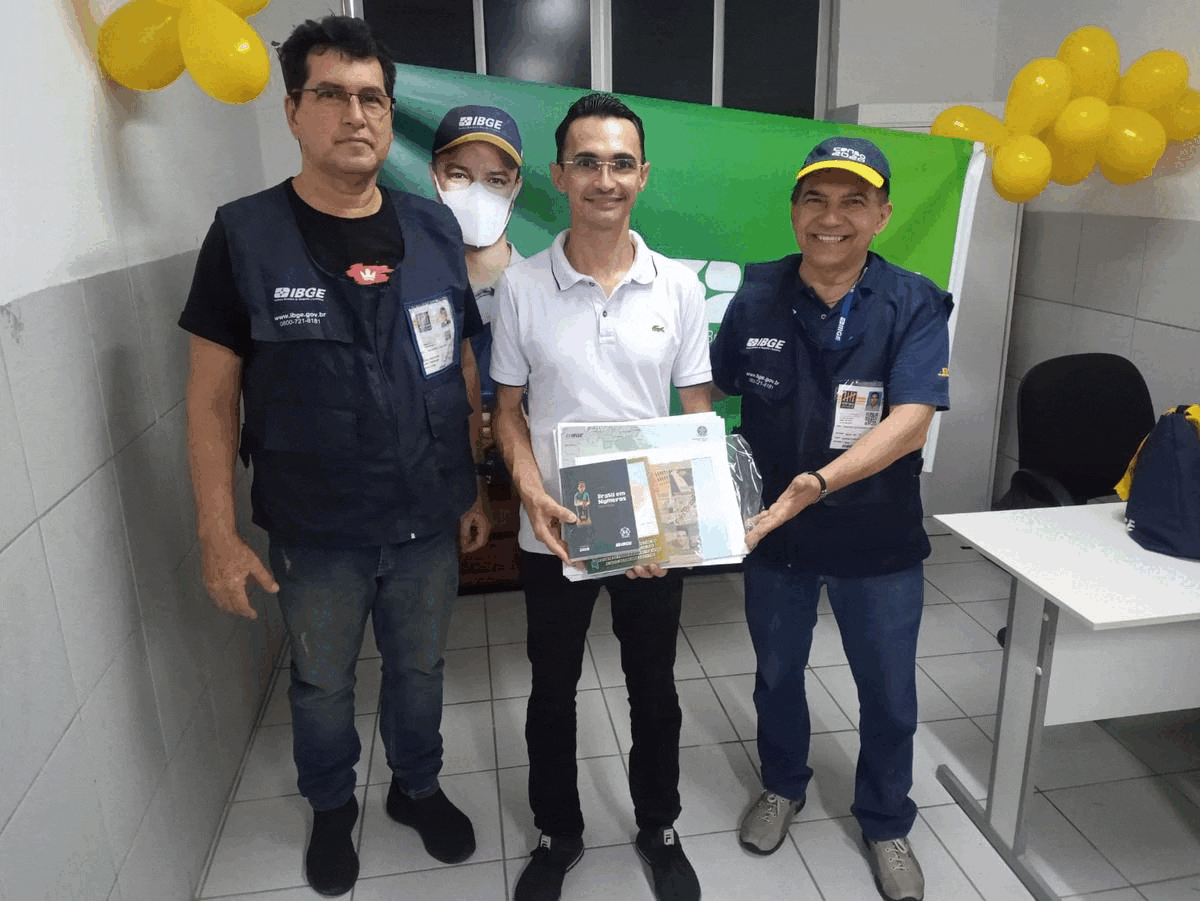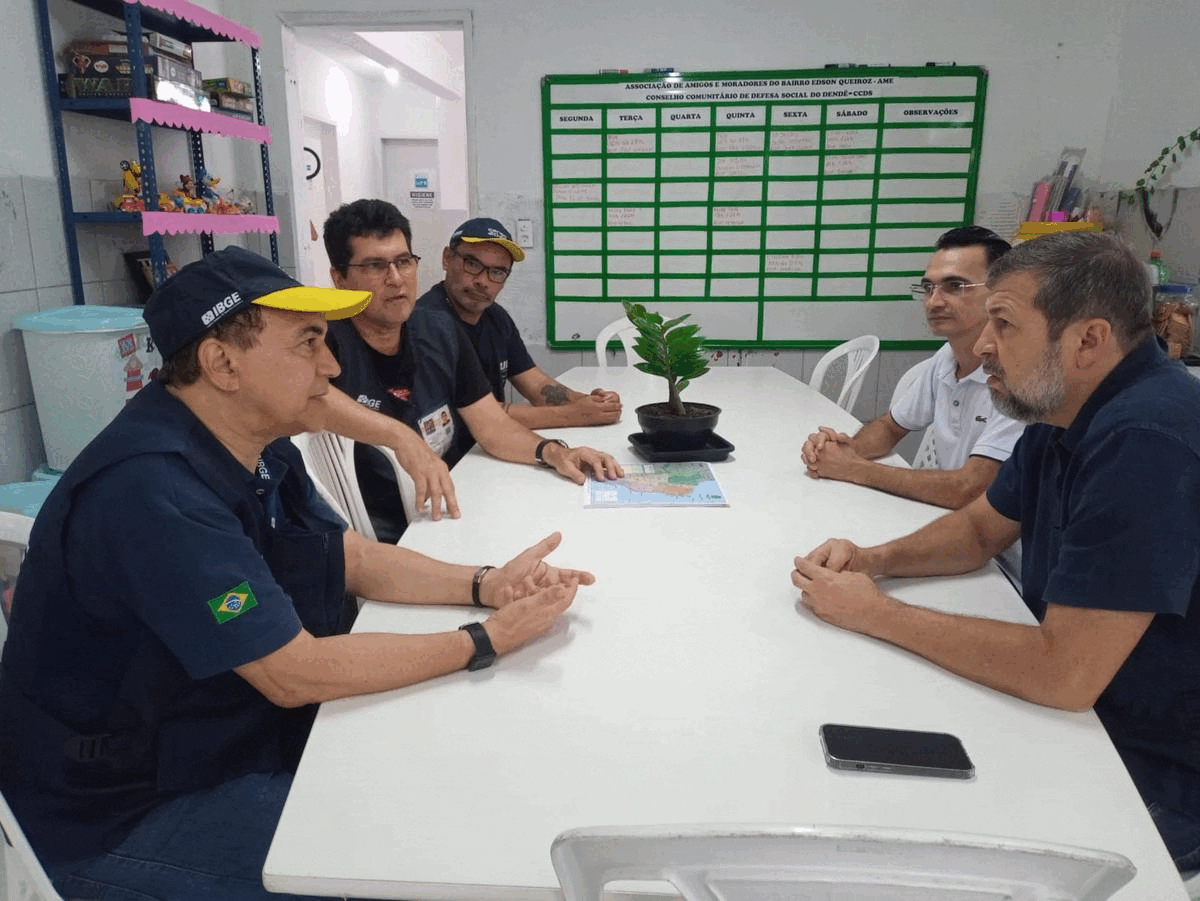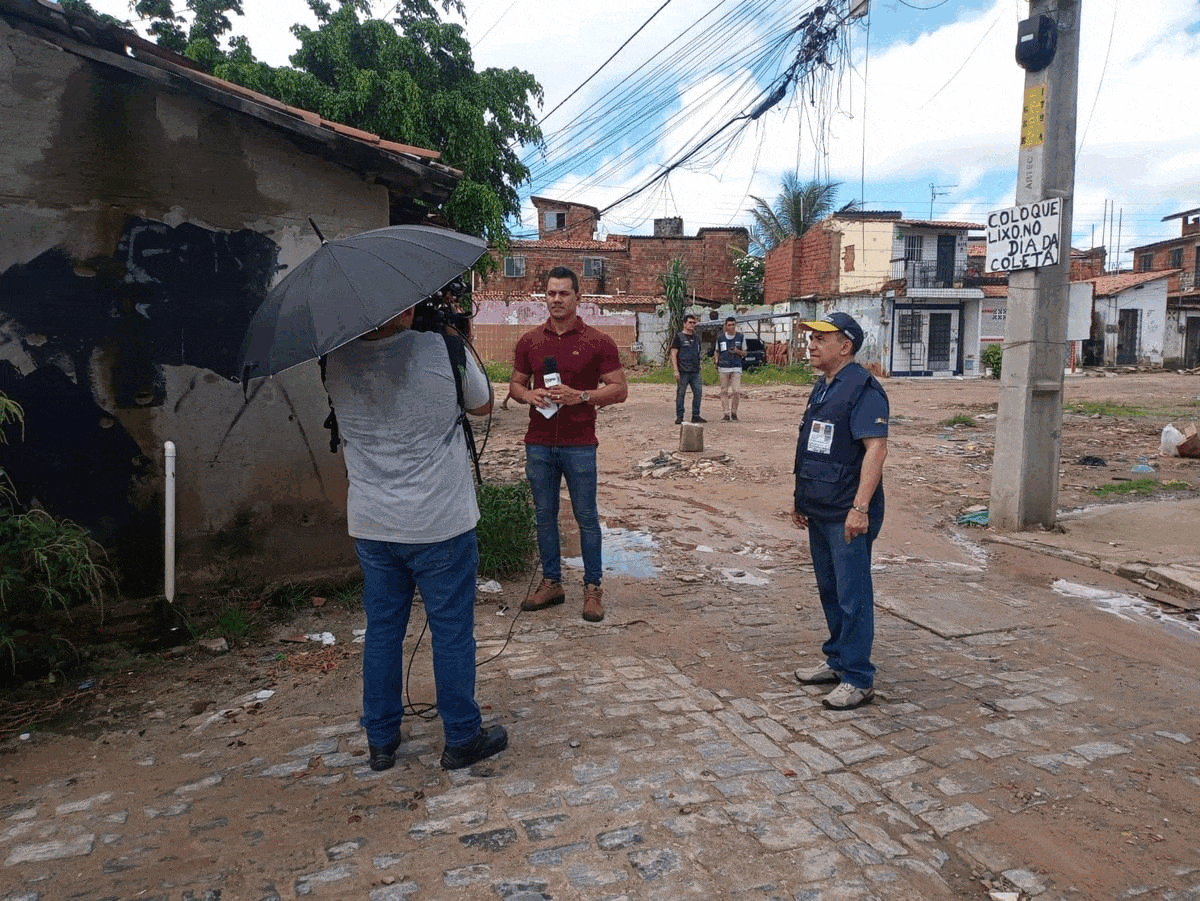Community of Dendê in Fortaleza-CE holds mobilization event for 2022 Census
March 28, 2023 17h05 | Last Updated: April 06, 2023 13h21
Last Saturday (March 25), the Dendê community in the Edson Queiroz neighborhood in Fortaleza hosted an important dissemination and census event promoted by the IBGE State Superintendence in Ceará (SES/CE). The event was part of the Census National Mobilization Day in Communities, which took place at various points across the country with similar actions in other subnormal agglomerates (known as communities, favelas, slums, lowlands, villas, stilt houses, etc.). The objective of the national mobilization was both to raise awareness about the importance of the census operation, as well as to provide for the census of those residents who had not yet answered the questionnaire.
The remainder is temporarily in Portuguese.
Census coordinators, supervisors and enumerators, in addition to the SES/CE Superintendent, Francisco Lopes, gathered at the headquarters of the Association of Friends and Residents of the Edson Queiroz Neighborhood (AME) to carry out the mobilization. Flyers, balloons and banners were used to invite the non-registered population to come. In addition, the press covered the event, with the presence of the newspapers O Povo and Diário do Nordeste, in addition to TV Diário and TV Verdes Mares. Both TVs recorded stories and also had live broadcasts. In the case of Verdes Mares, the live coverage was for Globo News.
The president of AME, Pedro Caúla, was very attentive with the IBGE team. Before the event, he recorded a promotional video, which was distributed via social media to the community population. In addition, Mr. Caúla offered the Association's facilities as a support point for the mobilization action. “Updating the Census is extremely important for us in the Dendê Community, as well as for the entire state of Ceará and for Brazil, because it is through the Census that public policies reach those who really need it”, pointed out the community leader .

Community leader Pedro Caúla made the residents' association facilities available for the event.
An important presence at the event was the vice-mayor and superintendent of the Planning Institute of Fortaleza (Iplanfor), Élcio Batista, who offered the IBGE the support of endemic disease agents to complete the Census in subnormal agglomerates in the capital. “Through the data produced by the IBGE, we can better plan public policies in the city of Fortaleza. Today, all mayors in Brazil are looking precisely at the Census in order to be able to carry out adequate planning for their municipalities”, highlighted the vice-mayor.

The vice-mayor of Fortaleza-CE, Élcio Batista, was present at the event and made the endemic disease agents in the municipality available for the IBGE.
The reality of the Dendê Community
The Dendê community emerged in the 1970s, with several families coming from other areas of Fortaleza, affected by the urbanization of the capital. “At that time, there was already a small population here that was called Dendê, because there were two dendê palm trees in the area. And the community grew, expanded, enlarging its area, occupying spaces, but still calling itself Dendê”, says Pedro Caúla.
The place was officially called the Edson Queiroz neighborhood in 1973, when the Foundation of the same name installed the first large enterprise in the area, the University of Fortaleza (Unifor). The neighborhood, which emerged from the gathering of the town of Dendê and the former Água Fria farm, is currently a demonstration of the social inequality of large metropolises, as high-standard developments and condominiums coexist side by side with poverty.

The president of the Dendê residents' association, Pedro Caúla, shows the community map to the IBGE team.
“One of the biggest challenges facing Dendê today is the lack of government assistance in basic needs such as health, infrastructure and primary care”, points out the community leader. In this sense, the Association of Friends and Residents of the Edson Queiroz Neighborhood (AME) emerged in 2010, from the mobilization of Dendê's residents. The institution aims at serving the community in the social, educational and cultural spheres, developing assistance and training actions, especially with children, adolescents and elderly people in situations of social vulnerability.
“Updating the Census will bring us a real picture of the needs of each area and location of the community, from statistics on social inequality to updating demands in social assistance and education”, celebrates Pedro Caúla, who sees the results of the Census as essential in the search for improvements for residents. For him, the choice of Dendê to host the National Census Mobilization Day event in the Communities already represents a gain: “Events like this bring the population closer to the institutions, in addition to promoting visibility for the community.”
Census in Subnormal Agglomerates
With the census coverage completed on the 28th of February, the 2022 Population Census now proceeds with the data processing stage. In March and April, enumerators and supervisors are working on refining the data, revisiting households where residents were absent or refused to answer. The areas of urban outskirts are among the places where high rates of non-response were registered, and, therefore, are being the target of this verification work.
Therefore, the National Census Mobilization Day event held last Saturday (25) contributed to the IBGE's effort to improve the census of subnormal agglomerates throughout the country at this stage of data processing. Subnormal agglomerates are defined as a form of irregular occupation for housing purposes, characterized mainly by the unavailability of essential public services. Ceará has 729 subnormal agglomerates spread over the capital Fortaleza and over 32 other municipalities, totaling 1721 enumeration areas.
All areas where non-response rates were higher than 5%, whether subnormal agglomerates or not, will be revisited in the calculation phase, and a new attempt at census will be made. The national mobilization action, by promoting dissemination via the press, contributes to the awareness-raising of residents of subnormal agglomerates, so that, when faced with a new contact by the enumerator, they are available to participate in the Census.

Press publicity was essential for disseminating the Census message to other communities in the country.
